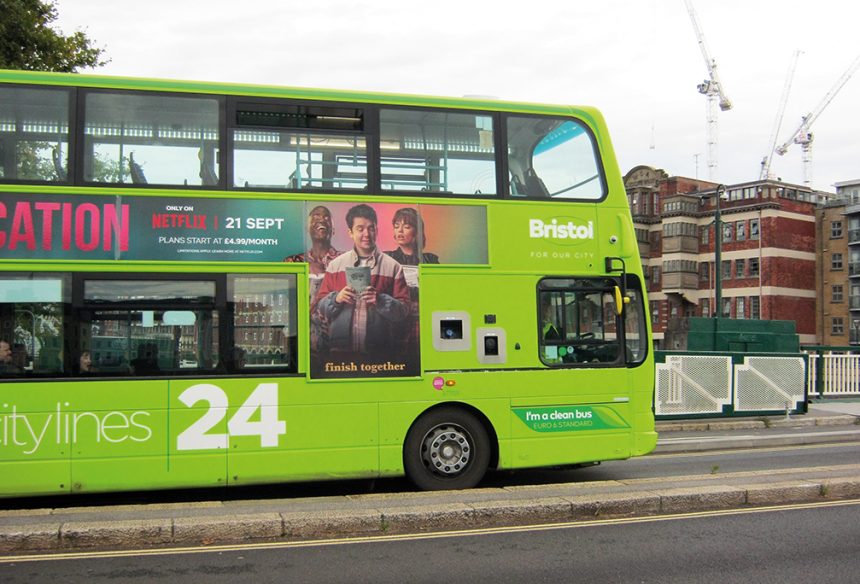Following the establishment of ‘Shadow’ Great British Railways and the progression of the rail Public Ownership Bill, the government has turned its attention to giving greater control of bus services to local authorities that want it.
Work is going on behind the scenes to prepare the Buses Bill, but my understanding is that this won’t see the light of day and be introduced into parliament for a while yet.
When this move towards reregulation proceeds through its various parliamentary stages, I am sure transport ministers will be pleased to see that bus franchising in Greater Manchester seems to be working well, with bus patronage climbing and revenue higher than forecast.
Why is the principle of franchising good for bus, but bad for rail?
Ministers will doubtless be able to use Greater Manchester as evidence, proof-positive, that franchising works. Whether it is the right solution for every authority and every part of the country is questionable — a sentiment declared in his previous life before becoming a minister by Lord Hendy, who knows a thing or two about buses.
As an aside, I find it interesting that the government wants to end franchising on the railway, but is happy for private companies to run bus services under a franchise system. Why is the principle of franchising good for bus, but bad for rail?
Budget gloom
Meanwhile, Prime Minister Keir Starmer has told us that things are going to get worse, apparently much worse, before they get better and has warned that the Budget on 30 October is going to be painful. I think most of us had worked that out already!
The tactic for a new government to warn of bad times ahead because of the incompetence and failures of the previous administration is hardly new. It’s one that George Osborne used, not very effectively, when he was appointed Chancellor in the Conservative-Lib Dem coalition in 2010.
But if things are as bad as we are being told, what might this mean for the bus industry, which has become so heavily dependent on subsidy for, if not its survival, then certainly to maintain current levels of service?
Council tax plans
There is much talk of this government removing the current cap on annual council tax increases that local authorities can make without a local referendum, and that could well help local authorities increase support for bus services.
There is a logic to this, if the government’s plan to give back control to locally elected leaders is to have any real teeth. Why, the argument will run, should locally elected leaders be told by central government how much they can or can’t raise through local taxes? Fine in theory, but if local authorities are given the freedom to raise council tax by as much as they like, I wonder how many may just jump at the opportunity and sting us with significant increases.
Councillors could pay the price at the ballot box, of course, at local elections, but I have a hunch that the government might start to become nervous at the sight of major increases in council tax, with all the implications that could have for stoking inflation and creating a very unhappy electorate.
Financial woes
The problem for the Prime Minister and the Chancellor, Rachel Reeves, is that things may not get better after they’ve become worse.
A fair few economists have been saying for some time that inflation was likely to start going back up by the end of the year, and that was before the large public sector pay increases that this government has awarded, before the expected increase in the electricity price cap in October, and so on.
If things are as bad as we are being told, what might this mean for the bus industry?
Further, plenty of economists and a fair few studies say the planned imposition of VAT on private schools and of reforms to the non-dom tax regime would cost the treasury money rather than generate extra tax income. Hardly a day now goes by when there isn’t a report in the media that the planned increases in inheritance tax and capital gains tax is causing wealthy individuals to move overseas.
Lord Mandelson, one of the creators of New Labour, once famously said that he was comfortable with people being “filthy rich”. It’s beginning to look like the Prime Minister and the Chancellor aren’t quite so happy with that view. They say that the state of the public finances is such that taxes must go up and that those with the broadest shoulders should bear the heavier burden. They already do, Prime Minister.
The honeymoon period is over
So, as I assess the performance of this new government over its first few weeks in office, I can’t help but feel that it’s already started to sow some very damaging seeds.
Already, opinion polls tell us that Mr Starmer’s own personal popularity rating has dropped sharply and is now negative. That’s before the Budget, which we are told is going to be very painful.
It’s not for me to comment on the merits or otherwise of the government’s policies – that’s ultimately for the electorate. However, it feels to me that it has adopted an approach to blame everything on the previous administration, which, although legitimate, is also very short term.

If things don’t get better pretty quickly — and the electorate is an impatient breed — then the Prime Minister may find that his massive parliamentary majority is not a pathway to a second term in office. He needs to remind himself that his majority is built on a very shallow popular vote with just 33% of the electorate voting for a Labour government — the smallest share for a majority government in the UK’s history.
I have sense that the next few months will be critical for the government’s long-term future.



























